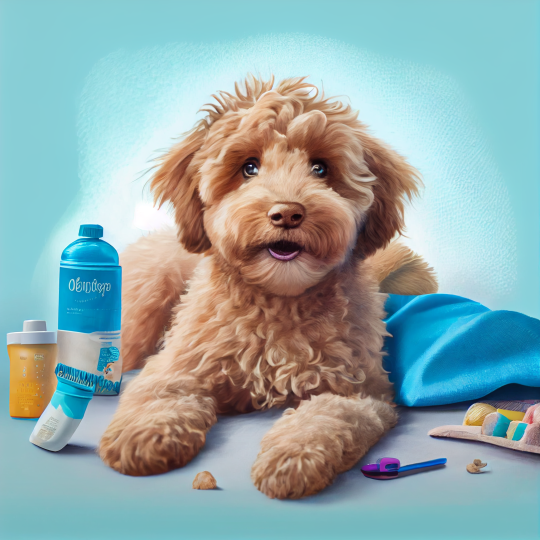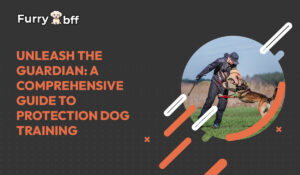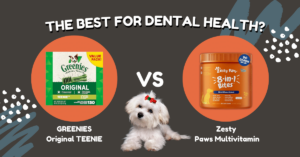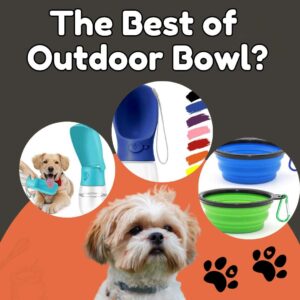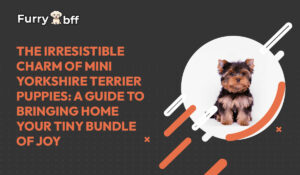Hypoallergenic dogs are popular among people with allergies to pet dander. However, just because these breeds are less likely to trigger allergies doesn’t mean they don’t require proper care and attention. In fact, hypoallergenic dogs need just as much attention, love, and care as any other dog breed. In this article, we’ll provide you with tips and tricks on how to keep your hypoallergenic dog healthy and happy.
Table of Contents
- Introduction
- Understanding Hypoallergenic Dogs
- Tips for Keeping Your Hypoallergenic Dog Healthy
- Feeding Your Dog a Balanced Diet
- Providing Adequate Exercise
- Regular Grooming
- Regular Vet Check-Ups
- Proper Dental Care
- Socialization and Training
- Tips for Keeping Your Hypoallergenic Dog Happy
- Giving Your Dog Attention and Love
- Providing Toys and Stimulation
- Creating a Safe and Comfortable Home Environment
- Consistency and Routine
- Acknowledging Your Dog’s Unique Personality
- Conclusion
- FAQs
Understanding Hypoallergenic Dogs
Hypoallergenic dogs are breeds that are less likely to cause allergies in people with dog allergies. These breeds typically have non-shedding or low-shedding coats and produce less dander, which is a common allergen. Some popular hypoallergenic breeds include the Bichon Frise, Poodle, Maltese, Shih Tzu, and Yorkshire Terrier. However, it’s important to note that hypoallergenic does not mean allergy-free. Some people with severe allergies may still have allergic reactions to these breeds.
Tips for Keeping Your Hypoallergenic Dog Healthy
Feeding Your Dog a Balanced Diet
A healthy diet is essential for keeping your hypoallergenic dog healthy. Make sure to provide your dog with a balanced diet that includes high-quality protein, carbohydrates, and essential nutrients. Avoid feeding your dog table scraps or processed foods, as these can be harmful to your dog’s health.
Providing Adequate Exercise
Regular exercise is essential for your dog’s physical and mental well-being. Take your dog for daily walks or runs, and provide toys and games that encourage physical activity. Regular exercise can also help prevent obesity, which can lead to health problems such as diabetes and heart disease.
Regular Grooming
Regular grooming is important for keeping your hypoallergenic dog healthy and happy. Brush your dog’s coat regularly to prevent matting and tangles, and bathe your dog as needed to keep their coat clean and healthy. Regular grooming can also help prevent skin infections and other health issues.
Regular Vet Check-Ups
Regular veterinary check-ups are important for detecting and preventing health problems in your dog. Take your dog to the vet for regular check-ups, vaccinations, and preventive care. Regular check-ups can also help detect health issues early when they are more easily treatable.
Proper Dental Care
Proper dental care is essential for your dog’s health. Brush your dog’s teeth regularly to prevent dental problems such as gum disease and tooth decay. Provide your dog with chew toys and dental treats that promote healthy teeth and gums.
Socialization and Training
Socialization and training are important for your dog’s mental and emotional well-being. Socialize your dog with other dogs and people to help prevent anxiety and aggression. Provide your dog with training to promote good behavior and obedience.
Tips for Keeping Your Hypoallergenic Dog Happy
Giving Your Dog Attention and Love
Dogs thrive on attention
and love. Make sure to spend quality time with your hypoallergenic dog every day, whether it’s playing together, going for walks, or simply cuddling. Show your dog affection and praise when they exhibit good behavior.
Providing Toys and Stimulation
Hypoallergenic dogs need mental stimulation just like any other breed. Provide your dog with toys that challenge their minds, such as puzzle toys and interactive games. Rotate your dog’s toys regularly to keep them interested and engaged.
Creating a Safe and Comfortable Home Environment
Create a safe and comfortable home environment for your hypoallergenic dog. Provide a comfortable bed for your dog to sleep in, and make sure your home is free of hazards and toxic substances. Use natural, non-toxic cleaning products to avoid harmful chemicals.
Consistency and Routine
Dogs thrive on routine and consistency. Establish a consistent routine for your dog’s feeding, exercise, and training. Stick to a regular schedule for walks and playtime to help your dog feel secure and comfortable.
Acknowledging Your Dog’s Unique Personality
Hypoallergenic dogs have unique personalities and preferences just like any other breed. Get to know your dog’s likes and dislikes, and tailor their care and attention accordingly. Recognize and celebrate your dog’s unique personality traits.
Conclusion
Keeping your hypoallergenic dog healthy and happy requires proper care, attention, and love. Providing your dog with a balanced diet, regular exercise, grooming, veterinary care, socialization, and training can help ensure their physical and mental well-being. Showing your dog affection, providing toys and stimulation, creating a safe home environment, establishing routine, and acknowledging their unique personality can help keep your hypoallergenic dog happy and content.
FAQs
- Do hypoallergenic dogs require special care compared to other breeds?
- Hypoallergenic dogs require similar care to other breeds, including proper diet, exercise, grooming, veterinary care, and training.
- Can people with severe allergies still have allergic reactions to hypoallergenic dogs?
- Yes, hypoallergenic does not mean allergy-free, and some people with severe allergies may still have allergic reactions to these breeds.
- How often should I take my hypoallergenic dog to the vet for check-ups?
- It’s recommended to take your dog to the vet for annual check-ups, vaccinations, and preventive care.
- Can I feed my hypoallergenic dog table scraps or processed foods?
- It’s best to avoid feeding your dog table scraps or processed foods, as these can be harmful to their health.
- How can I socialize my hypoallergenic dog with other dogs and people?
- Gradually introduce your dog to new dogs and people, and provide positive reinforcement and rewards for good behavior. Consider attending obedience classes or hiring a professional trainer for help.

